




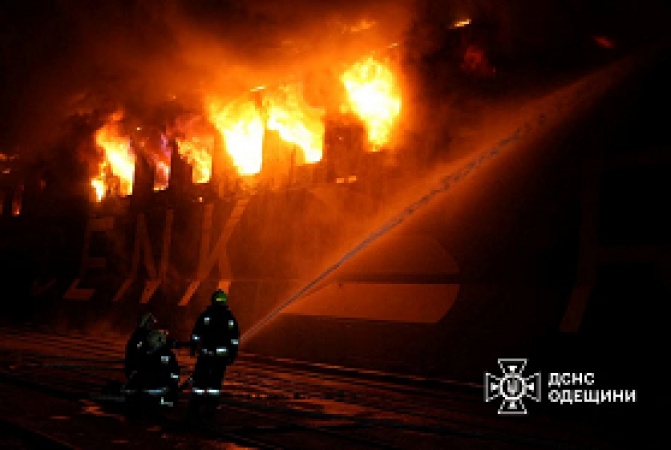

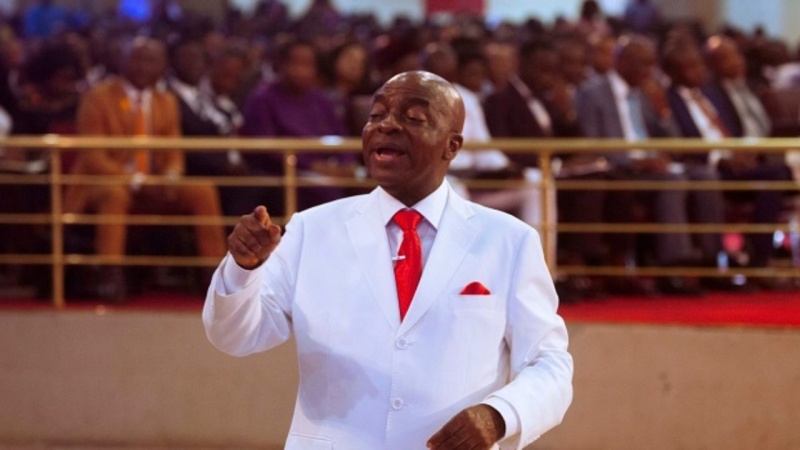





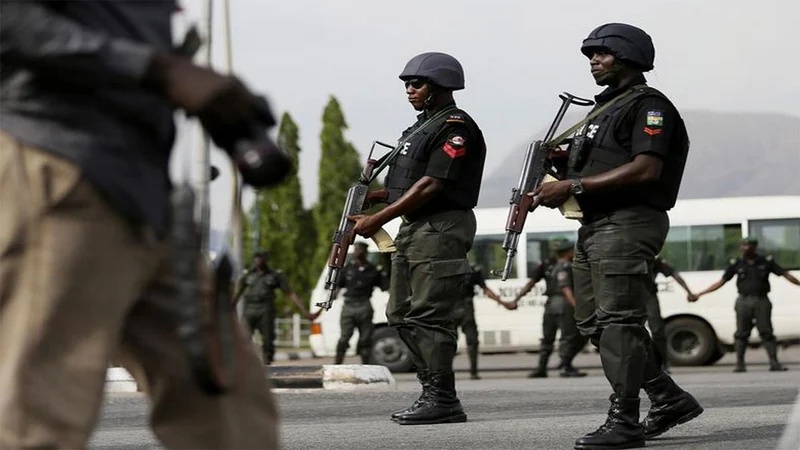
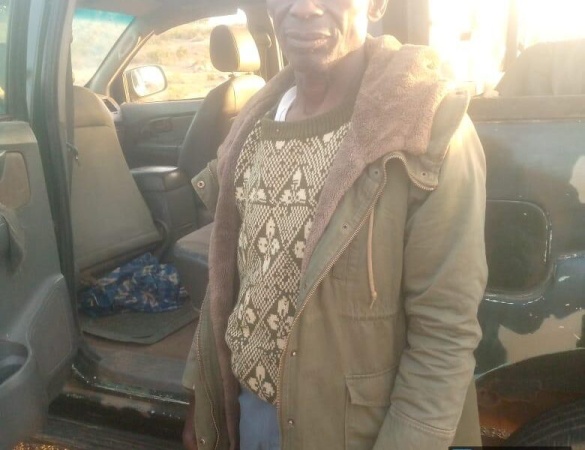















Loading banners


NEWS EXPRESS is Nigeria’s leading online newspaper. Published by Africa’s international award-winning journalist, Mr. Isaac Umunna, NEWS EXPRESS is Nigeria’s first truly professional online daily newspaper. It is published from Lagos, Nigeria’s economic and media hub, and has a provision for occasional special print editions. Thanks to our vast network of sources and dedicated team of professional journalists and contributors spread across Nigeria and overseas, NEWS EXPRESS has become synonymous with newsbreaks and exclusive stories from around the world.
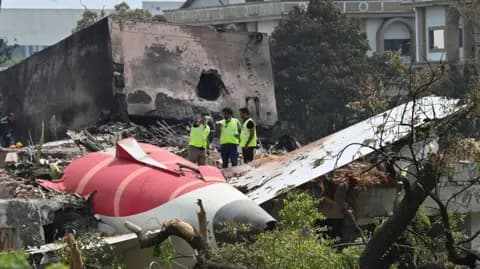
Nearly five months after a plane crash in India which killed 260 people, the investigation has become mired in controversy ? with the country's Supreme Court the latest to weigh in.
Flight 171 was en route to London from Ahmedabad in western India on 12 June. It crashed into a building just 32 seconds after taking off.
An interim report was released in July, but critics argue it unfairly focused on the actions of the pilots, diverting attention away from a possible fault with the aircraft.
On Friday, a judge in India's Supreme Court insisted that nobody could blame the aircraft's captain.
His comments came a week after the airline's boss insisted there was no problem with the aircraft.
During a panel discussion at the Aviation India 2025 summit in New Delhi in late October, Air India's chief executive Campbell Wilson admitted that the accident had been "absolutely devastating for the people involved, for the families of those involved, and the staff".
But he stressed that initial investigations by Indian officials, summed up in a preliminary report, had "indicated that there was nothing wrong with the aircraft, the engines or the operation of the airline".
He added although Air India was working with investigators it was not involved directly.
Because the accident happened in India, the investigation is being led by the country's Air Accident investigation Bureau (AAIB). However, because the aircraft and its engines were designed and built in America, US officials are also taking part.
A month after the accident, the AAIB published a preliminary report. This is standard procedure in major accident investigations and is meant to provide a summary of the known facts at the time of publication.
The report will typically draw on information gleaned from examination of the crash site, for example, as well as basic material downloaded from the flight data recorder. It will not normally make firm conclusions about the cause of the accident.
However, the 15-page report into Air India 171 has proved controversial. This is largely due to the contents of two short paragraphs.
First, it notes that seconds after takeoff, the fuel cutoff switches - normally used when starting the engines before a flight and shutting them down afterwards ? had been moved from the "run" to the cutoff position.
This would have deprived the engines of fuel, causing them to lose thrust rapidly. The switches were moved back to restart the engines, but too late to prevent the disaster.
It then says: "In the cockpit voice recording, one of the pilots is heard asking the other why did he cutoff. The other pilot responded that he did not do so."
What the fuel switches would have looked like inside a Boeing 787 Dreamliner cockpit
That indirectly-reported exchange sparked intense speculation about the role of the two pilots, Captain Sumeet Sabharwal and his first officer Clive Kunder, who was flying the plane at the time.
A former chair of the National Transportation Safety Board, Robert Sumwalt, claimed the report showed "this was not a problem with the airplane or the engines".
"Did somebody deliberately shut down the fuel, or was it somehow or another a slip that they inadvertently shut off the fuel?" he said during an interview with the US network CBS.
Indian aviation safety consultant Capt. Mohan Ranganathan strongly implied that pilot suicide could have caused the accident, in an interview with the country's NDTV channel.
"I don't want to use the word. I've heard the pilot had some medical history and... it can happen," he said.
Mike Andrews, a lawyer acting on behalf of victims' families, thinks the way in which information has been released has "led people unfairly and inappropriately to blame those pilots without all the information".
"An aircraft like this - that is so complex - has so many things that could go wrong," he explains.
"To seize upon those two very small, decontextualised pieces of information, and automatically blame pilots for suicide and mass murder... is unfair and wrong."
That view is echoed by Capt. Amit Singh, founder of the Safety Matters Foundation, an organisation based in India that works to promote a safety culture in aviation.
He has produced a report which claims the available evidence "strongly supports the theory of an electrical disturbance as the primary cause of the engine shutdown" that led to the disaster.
He believes an electrical fault may have caused the Full Authority Digital Engine Control (FADEC), a computerised system which manages the engines, to trigger a shutdown by cutting off the fuel supply.
Meanwhile the flight data recorder, he suggests, may have registered the command to shut off the fuel supply, rather than any physical movement of the cutoff switches in the cockpit.
In other words, the switches themselves may not have been touched at all, until the pilots tried to restart the engines.
Capt. Singh has also challenged the way in which the investigation has been carried out in India's Supreme Court.
He told the BBC the way in which the preliminary report was framed was biased because it "appears to suggest pilot error, without disclosing all the technical anomalies that occurred during the flight".
Meanwhile the Supreme Court itself has already commented on the issue.
It has been considering a petition filed by Pushkarraj Sabharwal, the father of Capt. Sumeet Sabharwal. The 91-year-old has been seeking an independent judicial inquiry into the tragedy.
"It's extremely unfortunate, this crash, but you should not carry this burden that your son is being blamed. Nobody can blame him for anything," Justice Surya Kant told him.
A further hearing is expected on 10 November.
The theory that an electrical fault could have caused the accident is supported by the US-based Foundation for Aviation Safety (FAS).
Its founder is Ed Pierson, a former senior manager at Boeing, who has previously been highly critical of safety standards at the US aerospace giant.
He believes the preliminary report was "woefully inadequate... embarrassingly inadequate".
His organisation has spent time examining reports of electrical issues on board 787s. They include water leaks into wiring bays, which have previously been noted by the US regulator, the Federal Aviation Authority. Concerns have also been voiced in some other quarters.
"There were so many of what we consider electrical oddities on that plane, that for them to come out and to all intents and purposes direct the blame to the pilots without exhaustively going through and examining potential system failures, we just thought was flat out wrong," he says.
He believes there was a deliberate attempt to divert attention away from the plane and on to the pilots.
The FAS has called for wholesale reform of current international air accident investigation procedures, citing "outdated protocols, conflicts of interest and systemic failures that endanger public trust and delay life-saving safety improvements".
Mary Schiavo, an attorney and former inspector general at the US Department of Transportation, disagrees that the pilots have been deliberately put under the spotlight.
She thinks the preliminary report was flawed, but only because investigators were under intense pressure to provide information, with worldwide attention focused on them.
"I think they were just in a hurry, because this was a horrific accident and the whole world was watching. They were just in a hurry to push something out," she says.
"Then, in my opinion, the whole world jumped to conclusions and right away was saying, 'this is pilot suicide, this was intentional'.
"If they had to do it over again, I don't think they would have put those little snippets from the cockpit voice recording in," she says.
Her own view is that "a computer or mechanical failure... is the most likely scenario".
International rules for air accident investigations stipulate that a final report should appear within 12 months of the event, but this is not always adhered to. However, until it is published, the true causes of the accident will remain unknown.
A former air accident investigator who spoke to the BBC emphasised the importance of "keeping an open mind", until the process has been completed.
Boeing has always maintained that the 787 is a safe aircraft ? and it does have a strong record.
The company told the BBC it would defer to India's AAIB to provide information about the investigation. (B BC)